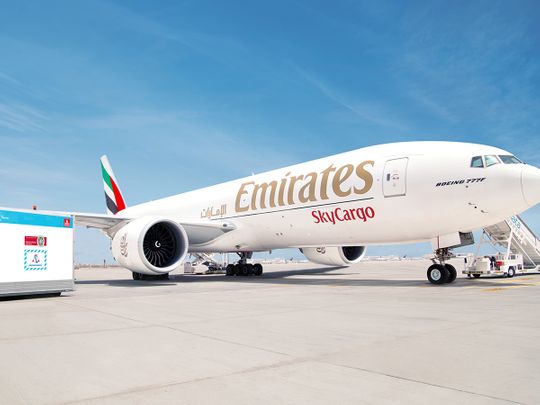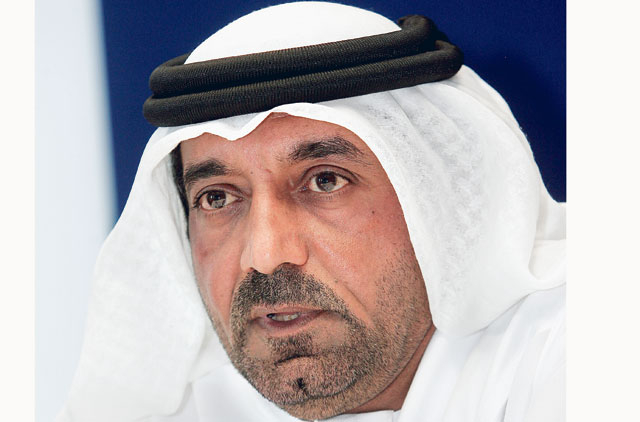
Dubai: With COVID-19 taking a toll on the aviation industry, Dubai's Emirates airline slipped into a Dh14.1 billion net loss for the first six months of its 2020-21 financial year (from April). Revenues were down 74 per cent to Dh13.7 billion.
"This dramatic revenue decline was due to the COVID-19 pandemic which brought global air passenger travel to a halt for many weeks as countries closed their borders and imposed travel restrictions," the airline said in a statement. "As part of pandemic containment measures, Emirates and dnata's hub in Dubai also suspended scheduled passenger flights for 8 weeks during April and May."
Sheikh Ahmed bin Saeed Al Maktoum, Chairman and Chief Executive of Emirates Airline and Group, said: "We began our current financial year amid a global lockdown when air passenger traffic was at a literal standstill. In this unprecedented situation for the aviation and travel industry, the Emirates Group recorded a half-year loss for the first time in over 30 years.
"No one can predict the future, but we expect a steep recovery in travel demand once a COVID-19 vaccine is available - and we are readying ourselves to serve that rebound."
Emirates carried 1.5 million passengers between April 1 and September 30, which is 95 per cent down from the same period last year. Cargo volumes were at 0.8 million tonnes, and the decline was kept down 35 per cent while yield more than doubled by 106 per cent.
"This reflects the extraordinary market situation for air freight during the global COVID-19 crisis, where drastically reduced passenger flights led to limited available capacity while airfreight demand rose strongly," the airline said.
Solid on cash front
The Group's cash position as of September 30 was at Dh20.7 billion ($ 5.6 billion), from Dh25.6 billion ($7 billion) on March 31. "We have been able to tap on our own strong cash reserves, and through our shareholder and the broader financial community, we continue to ensure we have access to sufficient funding to sustain the business and see us through this challenging period," said Sheikh Ahmed.
"In the first-half of 2020-21, our shareholder injected $2 billion into Emirates by way of an equity investment and they will support us on our recovery path." (Emirates airline is wholly owned by Dubai Government.)
Emirates suspended passenger flights from March 25 and started the relaunch in phases from May 21. As of September 30, it was flying to 104 cities.
Keeping costs down
Operating costs were down by 52 per cent against the overall capacity decrease of 67 per cent. Fuel costs were lower by 83 per cent - This was due to a decrease in oil prices, which were down 49 per cent compared to same period last year.
There was also a 76 per cent lower fuel uplift from the "substantially reduced" flight operations during the six months period up to end of September. Fuel - the largest component of the airline's cost in past reporting - only accounted for 11 per cent of operating costs compared with 32 per cent in the first six months of last year.
The Emirates Group's employee base, compared to March 31, dropped by 24 per cent to an overall count of 81,334 as of September 30. "This is in line with the company's expected capacity and business activities in the foreseeable future and general industry outlook," the company said. "Emirates and dnata continue to look at every means to protect its skilled workforce, including participating in job saver programmes where these exist."

The Emirates Group's resilience in the face of current headwinds is testimony to the strength of our business model, and our years of continued investment in skills, technology and infrastructure which are now paying off in terms of cost and operational efficiency








